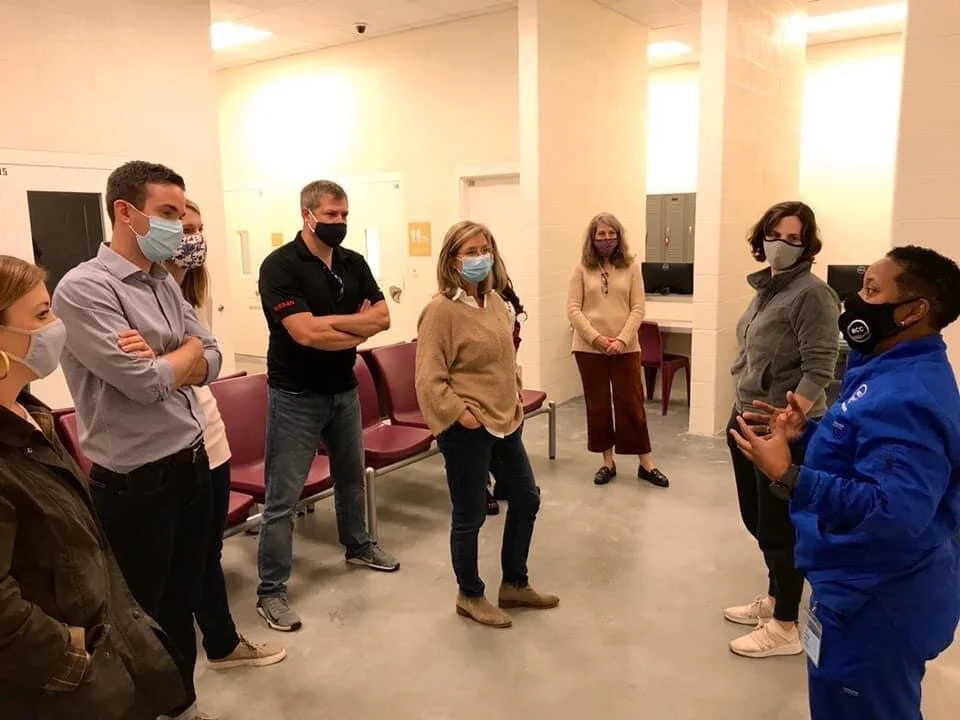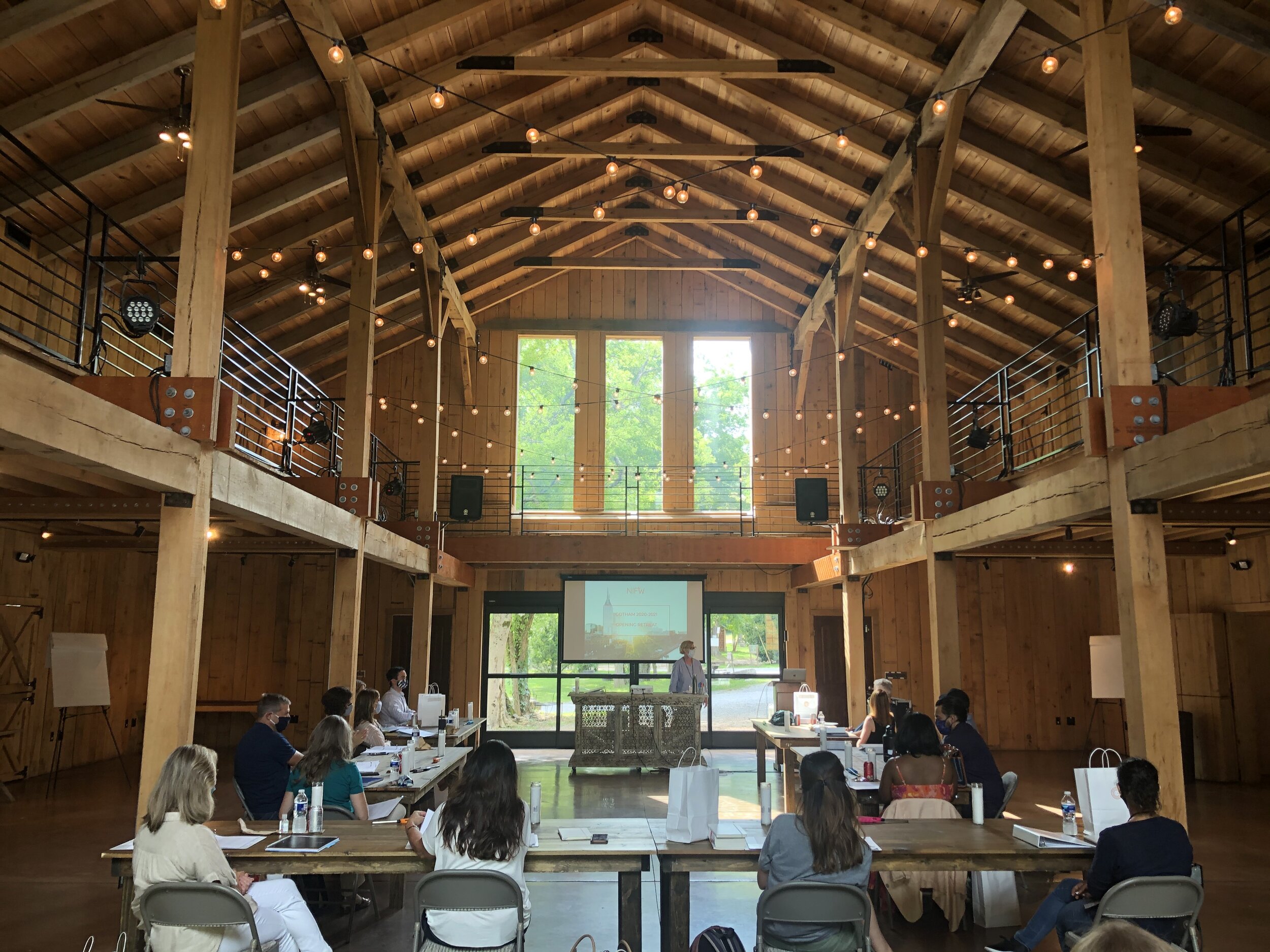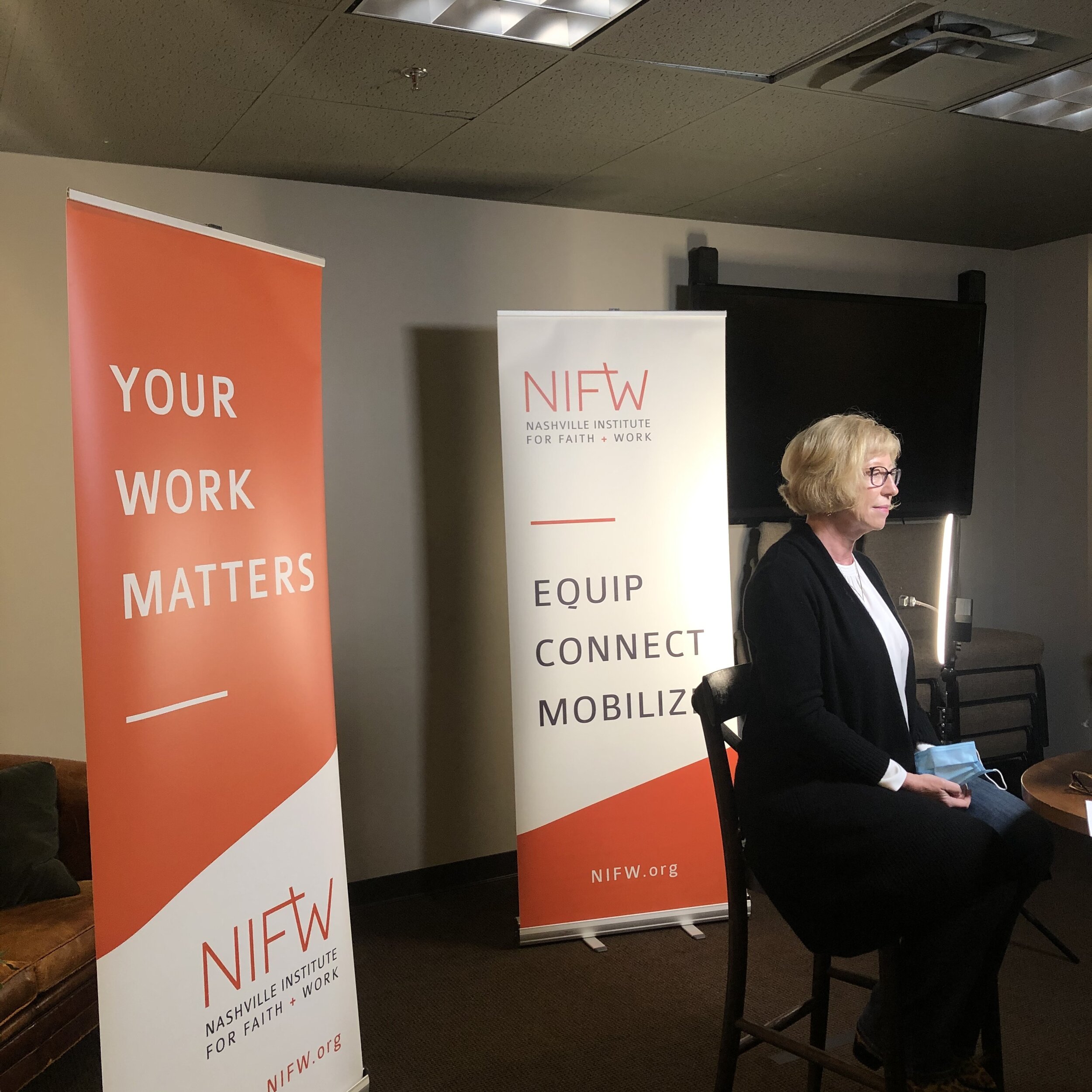Some people are born to wear multiple hats. Nicole Rowan is one of them.
An ordained pastor in North Nashville, owner of a nonprofit consulting business, and landlord liason for Metro Nashville’s HOPE Program assisting renters impacted by COVID-19, Rowan has what you might call “eclectic” work interests. Possessing advanced degrees in business management and business administration, Rowan previously worked as an executive leader for the YMCA for over 15 years.
identifying the disconnect
As Rowan tells it, her nonprofit leadership experience with the YMCA ignited her passion for supporting nonprofits with strategic planning. So passionate, in fact, that Rowan’s expertise and excitement led her to leave her position with the YMCA at the end of 2018 to launch her consulting business, Press Play On Purpose Consulting, specifically serving nonprofits.
As Rowan explains, oftentimes there is a disconnect in nonprofit organizations between the strategic goals established by senior leaders and the ability of the employees to implement the solutions. “What leaders have established,” says Rowan, “doesn’t always work on the ground level.”
Rowan is energized by helping these nonprofit organizations rethink their strategic planning processes. “It’s about understanding the nonprofit is a business,” shares Rowan, “and still has to operate as a business at the end of the day.”
redeeming difficult work relationships
“ Our difficult work relationships are often a mirror for something that we don’t see in ourselves, and in many ways, we’re also mirrors for other people.”
At the same time she was launching her business, Rowan joined Gotham, NIFW’s nine-month faith and work leadership program. Gotham, shares Rowan, helped her to discern where God was calling her based on her experience, gifts, and interests. “Gotham helped me understand that I wanted to help businesses with a direct social cause,” says Rowan.
Beyond helping her solidify her business model, Rowan also shares that her Gotham experience helped her in the trenches of her work. Once her consulting business was up and running, Rowan recognized an area where she needed the light of the Gospel to be shed: difficult working relationships.
Rowan’s perspective shifted after working through one particular exercise in Gotham which helps participants identify “sandpaper people” in their work and leads them through a process of examining where personal sin or idols may be showing up in the relationship. Ultimately, the exercise is aimed at seeing the Imago Dei in the other person and allowing God to intervene to redeem the relationship and change our own hearts in the process.
As Rowan explains, “In those times we’re often focused on complaining about the other person, rather than considering and seeing how you’re showing up, where sin might be present, and what that can teach you.”
This countercultural approach to also looking at ourselves rather than only blaming the other person is fueled by the Gospel’s command to love our neighbor as ourselves. “Our difficult work relationships,” echoes Rowan, “are often a mirror for something that we don’t see in ourselves, and in many ways, we’re also mirrors for other people.”
spiritual formation within community
While she emphasizes that her nonprofit consulting work offers her chances to minister to others daily, “even if it’s not done overtly,” Rowan also has served as an ordained minister at a church in North Nashville for over five years.
Discussing Gotham’s impact on her role as a church leader, Rowan shares that the program and its emphasis on both theological study and devotional practices “increased my fervor to be consistent with different forms of devotion, and to listen to God on a daily basis.”
“...We may not know how the work God has us doing today may be preparing us for our next assignment later in life.”
A significant lasting impact of Gotham, says Rowan, was how it helped her establish a habit of leaning on God in her work and outside of it, asking God, “What might you be saying to me in this moment?”
Rowan also adds that the Gotham curriculum helped her to become more aware of and open-minded about other Christian traditions and practices. With a diverse Gotham cohort coming from a variety of Christian traditions, Rowan said the friendships she developed were formative in helping her expand her view of what worship means to other people.
These friendships Rowan formed in Gotham are still important to her today. In fact, when Rowan was officially ordained as a pastor last year, she was able to invite ten people to the in-person ceremony. “Five of them,” says Rowan, “were friends from my Gotham cohort.”
EQUIPPED FOR GOOD WORKS
As Rowan’s life is a testament to, we may not know how the work God has us doing today may be preparing us for our next assignment later in life. What we do know is that God is the one who equips us to do those good works that He has prepared in advance for us to walk in (Ephesians 2:10).
Or, as Eugene Peterson puts it in The Message translation, “God creates each of us by Christ Jesus to join him in the work he does, the good work he has gotten ready for us to do, work we had better be doing.”
Rowan is embracing the work that God has invited her to join Him in. Whether she is serving her congregants, supporting a nonprofit, or helping renters impacted by COVID-19, Rowan is steadily loving her city to life—one day at a time.
Learn more about Gotham, NIFW’s faith + work leadership program designed for Christians seeking to steward their role for God’s glory & the common good.
Want more resources from NIFW? Follow us on Instagram, Twitter, Facebook, and LinkedIn. You can also find more resources from NIFW on our blog and resources page.
Want to stay connected with NIFW? Join our email list to be the first to know about our upcoming events, programs, and latest resources.














































